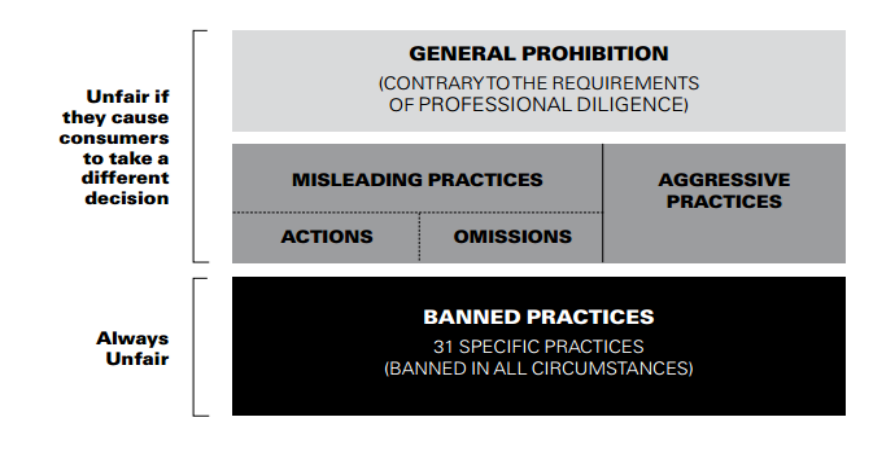Introduction
As per the legal norms, law of licensed premises is for the objective of protecting the property of individuals. In this law, both tangible and intangible properties are covered. Licensed premises refer to shop, building or other area which is licensed by authorities for conducting commercial activity for which license was issued (Brennan, and et.al., 2011). It works on permission of regulatory authority to operate. The purpose of licensing is to prevent crime and public nuisance for the safety of premises. Present project report is focused on several aspects of law of licensed premises. The report includes a description of the procedure of license application with the duties and responsibilities of management. Along with this, guidelines by the regulatory authority have been described for proper conduct. For better explanation licensed premises for food and safety hygiene and discrimination were also focused.
Task A
1.1 Types of licensed premises
Variety of licenses and permissions is provided by UK government to different organizations and individuals so they can be entitled to conduct activities related with entertainment, serving of late night refreshments and sale or supply of alcohol. Mainly there are four kinds of licensed premise which are as follows-
- Premise License-- A premises license or a temporary event notice (TEN) is required by entity if they are selling or supplying alcohol. This license is applicable to those entities whose main objective is to serve or supply alcohol (Briscoe and Donnelly, 2001). However, if limit of supply of liquor is maximum up to 60 Patrons then the organization can apply for small bar license.
- Personal License- Personal license is a portable license provided to the individual for giving him permission to sell alcohol at premises licensed for the sale of alcohol. Premise license is provided as per the nature of activity covered under applicable conditions (Day and Kelton, 2007). Personal license is provided for ten years while duration of premise license is not specific, it varies as per the nature of activity.
- Club Premise License- Club premise license is required when main objective of the firm is to provide entertainment to patrons. As per the provisions of Licensing Act 2003, regulate entertainment is licensable activity (Doherty, and Roche, 2003).
- Standard and Late Temporary Event Notice- Late night refreshment refers to the supply of hot food or hot drink to the public or other organization between 11pm to 5am. Food or drink is considered hot if it heated above ambient air temperature on the premise or somewhere else where it is supplied (Types of premises that require licences, 2010).
Exemptions
- Hot drink comprises of alcohol (although license of sale of liquor will be required)
- Hot beverage distributed by vending machines or temporally parked vehicle
- Hot drink or food provided free of charge
1.2 Difference between personal and premise license
Personal license is a portable license provided to the individual for giving him permission to sell alcohol at premises licensed for the sale of alcohol. Premise license is provided as per the nature of activity covered under applicable conditions (Day and Kelton, 2007). Personal license is provided for ten years while duration of premise license is not specific, it varies as per the nature of activity. As per the Licensing Act 2003, premise license is valid until and unless it is lapsed or it is surrendered by the holder. Personal license is mandatory only for the sale or supply of liquor. However, premise license is mandatory for sale of alcohol, provision of regulated entertainment and for provision of late night refreshment (Briscoe and Donnelly, 2001). In order to apply for personal license an individual should be 18 or above. Along with this, he or she should have appropriate training qualification to conduct such activities. In premise licensing there is no such requirement. In personal license, a particular person has authority to conduct the specific act; he or she cannot transfer his right to another person. In premised license, permission can be shared to conduct commercial activity.
1.3 Comparison of procedure for license application
An individual has to follow a proper procedure for applying personal or premise license. For personal license individual has to submit an application form in which personal details should be filled. It will cover purpose and place where alcohol will be sold along with general information such as name, age etc (Application for premises license, 2014). After this a basic criminal form is required to be submitted by the individual. In this form application should be made to Disclosure Scotland by certifying that he is or was not engaged in any kind of criminal activity or convictions in last five years. After these forms, relevant qualification certificate such as document for proving majority age, certificate of accredited training qualification etc. Above described documents are to be submitted with 2 passport size photos endorses along with appropriate fees.
Premise license is provided as per the activity conducted by the organization. This license is granted to specific premise to qualifying club status to specific premises. Initially, they should submit an application form in which information of premises will be submitted including plan to activity to be conducted in the organization. In this place and time for the sale or supply of alcohol should be provided. In condition to this, a consent form should be signed by the nominated Designated Premises Supervisor. All documents should be submitted with the appropriate fee. Amount of fee will be based on the bands regarding Domestic Rateable Valuation of the property.
1.4 Assessment of guidelines on the conduct of licensed premises for use by staff
For proper code of conduct guidelines are provided by the Licensing Act, 2003 to the license premises. Staffs employed by licensed premises are under compulsion to comply these following guidelines-
- It is the obligation of the Staff members employed by licensed premises should be qualified and trained appropriately so they can make proper use of license. For this purpose training should be provided to them in period of 3 months started from the date of license provided.
- After attaining licensed premise, it is obligation of DPS of the bars and hotels DPS to ensure that appointed staff is eligible and qualified for sale and supply of alcohol. They are required to appoint individuals who had completed their national accredited training for this purpose.
- Staff of the hotel cannot appoint employee with minor age (i.e. below 18) for the sale of alcohol. Staff member do not consume alcohol while they are on duty.
- Further, proper arrangement should be made by organization for the safety of children. They should kept hazardous equipment in proper care and supervision of experts.
- In addition to this, information of customers, guests or member should not be disclosed for unethical purpose or for unjust benefit.
2.1 Assessment of consequences of providing consumer with misleading information
Misleading information is covered in law of consumer protection to prevent unfair trading. Such acts are evaluated by situational approach. It covers actions or omissions which influences customers to make wrong decision or action covered in Banned practices.

If organizations are found to conduct such act they have to face adverse legal consequences, moreover customer can use their right to avail beneficial remedy. If such act leads to the financial loss of the customer then company has to pay damages accordingly and they will be obliged to pay penalty to the regulatory authority.
2.2 Evaluation of extent of employer liability in the protection of consumers
Employer of the licensed premises is obliged to conduct their duties appropriately to prevent risk for the customers for their protection. Crucial responsibility of employer of licensed premises is to provide protection to the customers. For this purpose, they are required to supply or sale goods and services of good quality at fair prices. They cannot charge superior rate comparative to the quality of product and services provided by them (Day, and Kelton, 2007). Employers will be held liable if such misconduct occurred in their premises whether deliberately or negligently. According to the Consumer Protection Act, they should provide proper information to the customers such as quantity, ingredients and statutory warning.
They should protect the interest of consumer by implementing proper policies. They are obliged for the product provided by them to the customer produced by other organization. Employers should take care while purchasing goods and services from the other organization. They should provide product to customer after proper inspection to prevent risk of injury. Along with this, employers are liable to maintain clause of confidentiality and privacy in the premises. They cannot disclose information of the customers for unjustified benefit. This duty is imposed through Data Protection Act.
As per the Consumer Protection Act employer of the licensed premise is liable to provide safe and hygiene environment to the customers (Wallin, Norström and Andréasson, 2003). In addition to this, as per vicarious liability employer should take care of the action of their employee to prevent negligent action which can harm customers. If they fail to do so, business organization will be held vicariously liable and they will be obliged to pay damages. According to the effect of European Union directives, employer will be obliged to pay penalty if they are held responsible for the misconduct.
2.3 Planning and justification of policy for assurance that all aspects of weights and measures legislation are implemented
There are several policies introduced by law for the assurance that all aspects of weights and measures legislation are implemented in licensed premise. The clauses regarding these policies are covered under Weights and Measures (Packaged Goods) Regulations Act 2006 and HM revenue and customs.
As per the provisions of this Act liquor should be supplied or served in proper quantity which should not be injurious to the health of customers. Entity is obliged to pay specific rates on the production or sale of beer and cider; spirits; wines as per HM Customs & Excise
These regulations are established for quality control of packaged goods. According to these regulations, consumers are required to be informed regarding quantity and protection provided against short measure. As per the packers rule, packing should not be less than the nominal quantity, proportion of packages should be less than a specified level and no package should be short by twice the tolerable negative error. This policy is justified because it provides proper information to consumers about the products they are consuming. Moreover, this policy also provides protection to customers against the mismatch of contents on the packaging with actual product (Wallin, Gripenberg, and Andréasson, 2005). As per this policy, no package will be shorted twice the amount of tolerable negative error. By this policy customer can get right products at right price with proper assurance of quality and quantity of package. For the proper monitoring legal authorities will check quantity of package is according to the legislation norms and can make proper record of supply and sale of liquor in the premises. Moreover, they can control conduct inappropriate to legal norms.
Task B
3.1 Key components of a range of regulations
Major components of regulation regarding health and safety policy in the licensed premises is as follow-
- Noise- As per the work regulations Act 1989, employer of the licensed premise is liable to make appropriate arrangement for the staff and customer where there is possibility of loud sound. For clubs and hotels, it is essential that they should implement proper policies to reduce noise (Lister, and et.al. 2000).
- Safe working environment- It is mandatory for all bars, hotel and clubs who have more than 5 employees to have proper framed and documented policy regarding safety of customers. Policy should comprise of arrangements for emergency situations, maintenance of hazardous equipments (for ex. Gas and electrical), safety audits and procedure of reporting accidents. Along with this, employers are obliged to provide training and making first aid arrangements.
- Hygiene and proper disclosure- Entire hotels and restaurants are under compulsion to provide safe and hygiene environment to customers and employees. As per clauses of occupiers liability act they should take safety measures to prevent possibility of injury of visitors (Hygiene and food safety guidance. 2014).
- Emergency services- Organization should check in regular time intervals that their emergency precautions are in good condition. For example, all emergency exit doors are opening freely and fully, fire alarm is working or not, fire extinguisher is on proper place or not.
3.2 Duties and responsibilities associated with the management of licensed premises
Along with the Designated Premises Supervisor, management is also responsible to provide safe environment to protect interest of public and licensed premise (Donohue, 2001). Main duties and responsibilities of management is as follow-
- They should follow all the provisions of the common law. For say they should work for the benefit of organization and customers. They should maintain confidentiality factor in the organization.
- They should assess risk properly to prevent risk of injury in future operations.
- Management should work as per the direction of the employer or Designated Premises Supervisor for proper conduct (Briscoe and Donnelly, 2001).
- They should not provide misleading information or facts which are prejudice to the interest of company.
- It is liability of employer to monitor act of subordinate to avoid misconduct.
3.3 Evaluation of impact of food safety and hygiene legislation
Food safety and hygiene legislation is developed by government to protect the interest and assurance of the safety of the consumers. Such policies directly affect the operations of the licensed premises as they are obliged to comply legal norms to prevent penalties and claims. It has positive impact on management to provide guidance to staff member for appropriate code of conduct (Hygiene and food safety guidance. 2014). As per the norms of food safety requirements and offences, licensed premises are obliged to serve quality food with proper safety measures. In addition to this, guidelines by food hygiene regulations motivate organization to provide safe working environment. For this purpose, safety audit is conducted by them for regular check on the operations of the organization. Due to these policies, liquor product sold or supplied by them has proper label with contains, price and quantity of it. Moreover, as per the Hazard Analysis Critical Control Point (HACCP) proper care is taken by them to prevent injury and to reduce risk in work environment.
4.1 Justification of the responsibilities of employer in the employment of staff
Following are the responsibilities of employer in the employment of staff.
Employer is obliged to verify and check all the documents provided by the job application for relevancy and reliability. Along with this, employee should appoint with adequate academic qualifications and accredited training qualifications.If individual is appointed to sale or supply alcohol in the licensed premises then employer should assure that he is major and properly qualified for such activity. They should assure that employed person has taken nationally accredited training (Day, and Kelton, 2007).
Along with this, employer has responsibility to disclose all material information which is essential. They should provide proper training and guidance to them, so they can operate accordingly.These responsibilities are justified because employer is responsible for the act of employee, thus he should make proper enquiry in process of employment of staff. By this, organization will have efficient staff; there will be less possibility of risk of injury to customers and other staff members (Doherty, and Roche, 2003). In addition to this, employer can follow legal norms in better manner by operating with eligible staff as they do not have to pay penalty or claims. With efficient staff they will be able to enhance their productivity.
4.2 Key aspects of discrimination legislation
Discrimination legislation is one of the crucial laws in the England and Wales which protect people from unfair biasness in work place and in society. Aspects of discrimination are covered in both Equality Act and Employment Act. According to the principles of this Act, partial behavior of employer is not justified on the basis of religion, age, gender and status. It will be considered as unlawful practice which has severe penalties and convictions. This law was established to protect employee from unjustified discrimination (Brennan, and et. al., 2011). It covers factors of dismissal, inappropriate terms and condition, training, promotion and demotion, transfer and other unfair practices. If employer is engaged in such act then he will be obliged to pay penalty or his/her license can be cancelled or they will be liable to pay damages to victim or they will be sentenced. In addition to this, discrimination legislation also prohibits
partiality in access to education, goods and services, employment etc. For example; entity cannot deny serving customer on the basis of his race, age and gendering until and unless discrimination is justified by law or by public policy. For say for example: bar can deny serving alcohol to minor child or food to residence of enemy country. Thus, employers should not conduct discrimination to prevent adverse consequences.
Conclusion
From the present project report, it can be concluded that license is compulsory for the organization whose operations are covered in Licensing Act 2003. Designated Premises Supervisor and individual holding license are obliged to take care of their actions for protection and safety of customers. To initiate such activities they should attain license by following legal procedure. As per the norms along with license holder management is also liable to take care of health and safety of customers. Thus, it is the liability of employer to monitor act of subordinate to avoid misconduct and to implement policies developed by law in their operations.
REFERENCES
Books and journals
- Andreasson, S., Lindewald, B., and Rehnman, C. 2000. Overâ€serving patrons in licensed premises in Stockholm. Addiction.pp 953. 359-363.
- Brennan, I. and et. al., 2011. Interventions for disorder and severe intoxication in and around licensed premises, 1989–2009. Addiction. 106(4). 706-713.
- Briscoe, S. and Donnelly, N., 2001. Assaults on licensed premises in inner-urban areas. BOCSAR NSW Alcohol Studies Bulletins.
- Day, H., and Kelton, R., 2007. The valuation of licensed premises. Journal of Property Investment & Finance. 25(2). pp.306 – 321.
- Doherty, S. and Roche, A. M., 2003. Alcohol and licensed premises: Best practice in policing. Australasian Centre for Policing Research

























